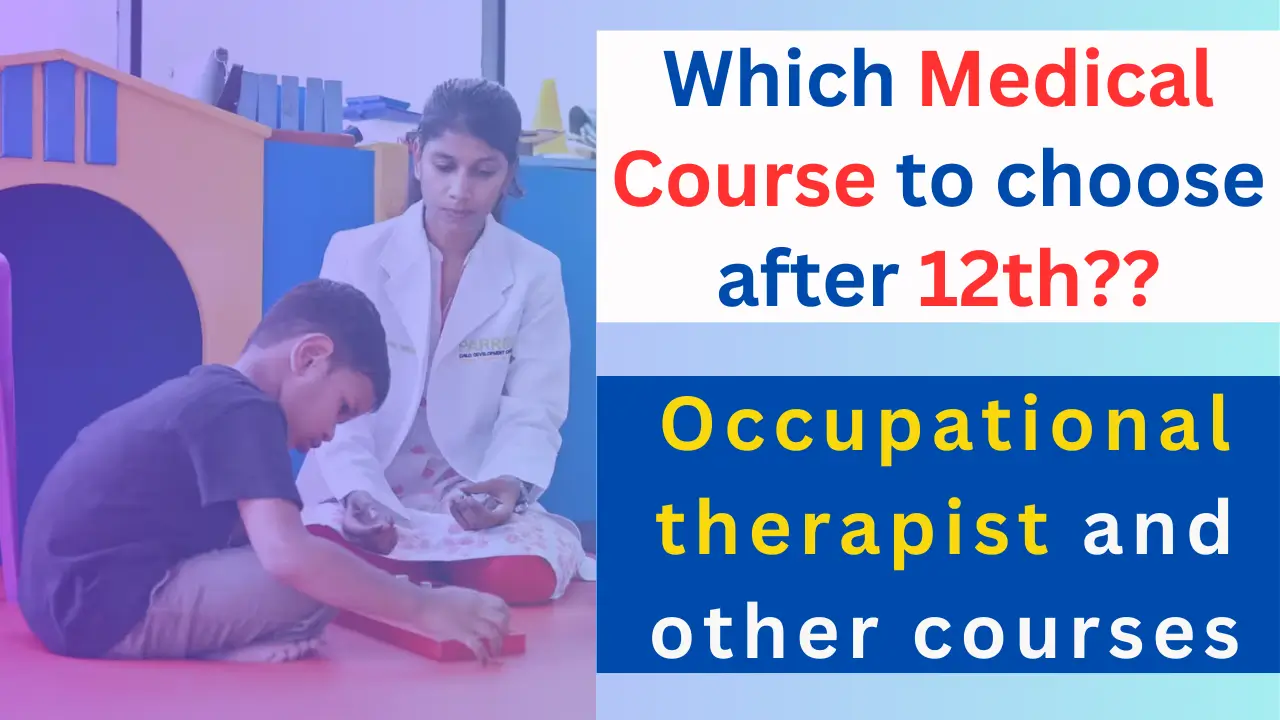The medical field is a vast and diverse domain that offers numerous career opportunities beyond the traditional path of becoming a doctor through an MBBS degree. Many students are unaware of the various career options available to them in healthcare that do not require an MBBS qualification. This article will explore several rewarding careers in the medical field, detailing their requirements, job roles, and potential salaries.
Contents
Why Consider Careers Other Than MBBS?
Choosing a career in the medical field without pursuing an MBBS degree has several advantages:
- Diverse Opportunities: A wide range of professions allows you to find your niche based on your interests.
- Shorter Duration: Many alternative courses require less time to complete than an MBBS degree.
- High Demand: Fields like nursing, pharmacy, and allied health sciences are consistently in demand.
- Work-Life Balance: Some careers offer better work-life balance compared to traditional medical practices.
Popular Medical Careers Apart from MBBS

| Career Option | Overview | Duration | Career Opportunities | Average Salary (Annual) |
| 1. Nursing | Provides patient care and support in hospitals and clinics. | 3-4 years | Registered Nurse, Nurse Practitioner | $60,000 – $90,000 |
| 2. Pharmacy | Focuses on medication management and patient counseling. | 4 years | Pharmacist, Clinical Researcher | $70,000 – $100,000 |
| 3. Physiotherapy | Helps patients recover mobility and manage pain through exercises. | 4 years | Physiotherapist, Rehabilitation Specialist | $65,000 – $85,000 |
| 4. Occupational Therapy | Assists patients in improving their ability to perform daily activities. | 4 years | Occupational Therapist | $60,000 – $80,000 |
| 5. Medical Laboratory Technology | Involves testing samples to diagnose diseases. | 3-4 years | Medical Lab Technician, Clinical Lab Scientist | $50,000 – $70,000 |
| 6. Radiology and Imaging Technology | Uses imaging techniques to diagnose conditions. | 3-4 years | Radiologic Technologist, MRI Technologist | $55,000 – $75,000 |
| 7. Veterinary Science | Focuses on animal health and treatment. | 5 years | Veterinarian, Veterinary Technician | $70,000 – $90,000 |
| 8. Biomedical Engineering | Combines engineering principles with medical sciences to develop devices. | 4 years | Biomedical Engineer, Clinical Engineer | $80,000 – $100,000 |
| 9. Nutrition and Dietetics | Focuses on food and nutrition for health improvement. | 3-4 years | Nutritionist, Dietitian | $50,000 – $70,000 |
| 10. Alternative Medicine | Includes practices like Ayurveda and Homeopathy. | 4-5 years | Ayurvedic Practitioner, Homeopath | Varies widely |
Detailed Overview of Selected Careers
1. Nursing
- Overview: Nurses provide essential care to patients in various healthcare settings.
- Requirements: A Bachelor of Science in Nursing (BSN) or a diploma in nursing.
- Career Opportunities: Registered Nurse (RN), Nurse Practitioner (NP).
- Average Salary: Ranges from $60,000 to $90,000 annually.
2. Pharmacy
- Overview: Pharmacists manage medications and provide advice on their use.
- Requirements: A Bachelor of Pharmacy (B.Pharm) or Doctor of Pharmacy (PharmD).
- Career Opportunities: Community Pharmacist, Clinical Researcher.
- Average Salary: Typically between $70,000 and $100,000 annually.
3. Physiotherapy
- Overview: Physiotherapists help patients recover movement after injury or surgery.
- Requirements: A Bachelor’s degree in Physiotherapy (BPT).
- Career Opportunities: Physiotherapist or Rehabilitation Specialist.
- Average Salary: Generally ranges from $65,000 to $85,000 annually.
4. Occupational Therapy
- Overview: Occupational therapists assist individuals in performing daily tasks.
- Requirements: A Bachelor’s or Master’s degree in Occupational Therapy.
- Career Opportunities: Occupational Therapist.
- Average Salary: Ranges from $60,000 to $80,000 annually.
5. Medical Laboratory Technology
- Overview: Medical lab technologists conduct tests on patient samples for diagnosis.
- Requirements: A degree in Medical Laboratory Technology (BMLT).
- Career Opportunities: Medical Lab Technician or Clinical Lab Scientist.
- Average Salary: Typically between $50,000 and $70,000 annually.
Emerging Fields in Medical Careers
In addition to traditional roles listed above, several emerging fields are gaining popularity:
Biomedical Engineering
Combines engineering with biology to develop medical devices and technology.
Health Informatics
Focuses on managing healthcare data and information systems.
Genetic Counseling
Involves advising patients about genetic disorders and testing options.
Steps to Choose the Right Career Path
Choosing the right career path requires careful consideration:
Step 1: Self-Evaluation
Assess your interests and strengths:
- What subjects do you enjoy?
- Are you more inclined towards patient care or technical roles?
Step 2: Research Different Fields
Explore various medical careers:
- Read about each field’s responsibilities and requirements.
- Investigate potential career paths within each field.
Step 3: Consider Job Market Trends
Research current job trends:
- Which fields are experiencing growth?
- What are the average salaries for different roles?
Step 4: Seek Guidance
Talk to professionals:
- Conduct informational interviews with individuals working in your fields of interest.
- Attend career fairs or workshops related to healthcare professions.
Step 5: Evaluate Educational Requirements
Consider the education needed for each career:
- What degrees or certifications are required?
- How long will it take to complete the necessary education?
Step 6: Financial Considerations
Evaluate the cost of education:
- Look into tuition fees for different programs.
- Research available scholarships or financial aid options.
Conclusion
Pursuing a career in the medical field without an MBBS degree offers numerous opportunities for success and fulfillment. From nursing and pharmacy to biomedical engineering and alternative medicine, there are many paths you can take based on your interests and strengths.
By exploring these options thoroughly:
- Assess your skills and interests.
- Research different careers within the medical field.
- Consider job market trends and educational requirements.
This approach will help you make an informed decision that aligns with your goals and aspirations in the healthcare sector. Embrace the diverse opportunities available beyond MBBS and embark on a rewarding journey in the medical profession!